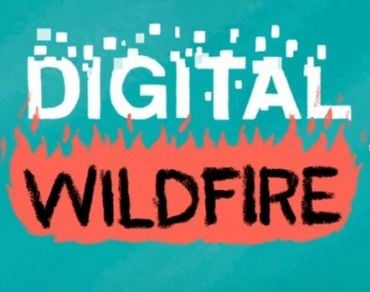Putting Out Digital Wildfires Before They Take Hold
Social media platforms such as Facebook, Instagram, Snapchat and Twitter are a hugely popular feature of modern life as they enable users to share content, news and ideas with many others around the world.
 Digital Wildfire project logo
Digital Wildfire project logoThe team, including Dr Helena Webb, conducted a research project to investigate how digital wildfires spread on social media, what kinds of harm they cause, and what actions can be taken to limit or even prevent their damage. During the project, they conducted a range of activities that included:
Examining different opportunities for the regulation of social media;
Observing how key organisations and institutions such as the police, regulators, anti-harassment groups and schools deal with harmful social media content;
Soliciting views of different groups on the appropriate ways to manage online content;
Creating resources for education and reflection on what it means to be a responsible digital citizen.
Their project has had many positive outcomes. The team have used their findings to support academic knowledge and have created a wider public legacy through their education and reflection materials. They have particularly had an influence on policy in relation to the themes of their project. As a result of their work, they contributed to a government inquiry into children and the Internet. This led to the publication of the report ‘Growing up with the Internet’, which was debated in the House of Lords, and which has also contributed to current government inquiries into the development of an age-appropriate design code for online platforms.
The research has also shaped debates in the academic community and research ethics boards – in particular about appropriate method through which to conduct research about social media and to publish findings in an ethical manner.
Research funded by: ESRC with additional sponsorship from Santander Universities.